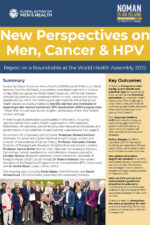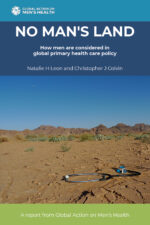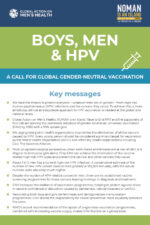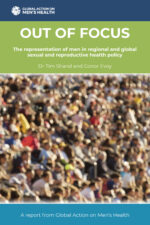
Improving the Health of Men and Boys
Policy | Practice | Research
Men’s health is poor throughout the world.
Globally, male life expectancy is just 71 years and much lower in many countries, especially in the Global South.
There are major inequalities in men’s health within countries too, linked to income, race, ethnicity, sexuality and other social determinants of health.
Men are significantly more likely than women to die from cancer, cardiovascular disease, suicide and road traffic accidents. They are more likely to smoke, drink alcohol excessively and eat a poor diet. Many men are also less likely to access health services.
Yet men are almost entirely absent from global public health policy.
No global and few national health organisations have identified men’s health as an issue or taken any significant steps to address the problems.
Global Action on Men’s Health (GAMH) exists to change this. Focussing primarily on public health and the social determinants of health, GAMH makes the case for policy change at the global, regional and national levels that will make a difference to the health of men and boys.
Our aims
Our approach






